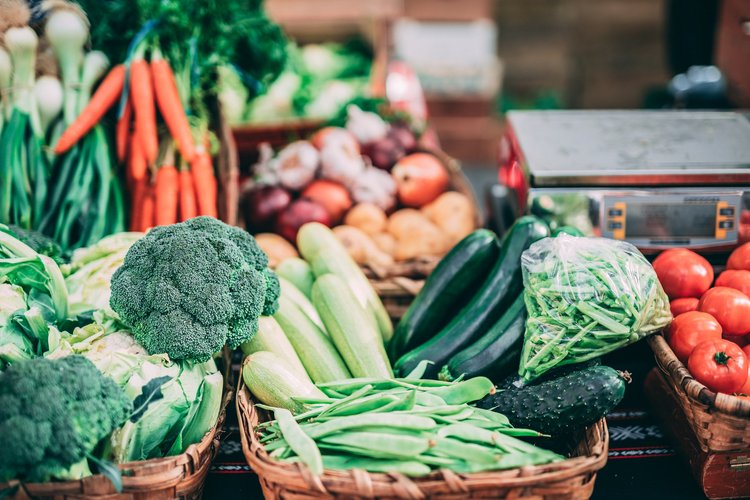What is inflammation?
Inflammation is a normally bodily response to infection, injury and illness. In some instances, ‘acute’ inflammation, inflammation is visible. For example, if we cut our skin the body thinks it is under attack and responds by producing symptoms such as swelling, pain, redness and heat. These symptoms are the body’s natural way of defending itself. Here, the immune response releases different cells and signalling molecules into the bloodstream which set off a cascade of events to trigger a response that works to heal the area affected. The process usually resolves the issue relatively quickly and the inflammation will subside.
However, this immune response can go wrong. If we are continually exposing the body to repeated drivers of inflammation (see below), the body thinks it is under attack continuously, leading to sustained activation of the immune system. Just like our brain not being able to function without sleep, the immune system cannot function without a break. If it does not get a break it can trigger the immune system to attack its own, healthy tissues, known as autoimmune disease. Or, it can cause dysfunction to different bodily systems. This can result in symptoms such as:
- Pain
- Swollen joints
- Low energy
- Low mood
- Bleeding gums
- Weight gain
- Skin changes – rashes, dry skin
- Frequent infections
- Reduced ability to fight infection
- Digestive issues
If left unresolved, this chronic inflammation can manifest into chronic disease states, also known as ‘non-communicable diseases’. With inflammation being linked to:

- Cancer
- Alzheimers
- Cardiovascular disease
- Depression
- Inflammatory Bowel Disease
- Neurological conditions
- Psoriasis
- Eczema
- Arthritis
- Type 2 diabetes
However, there is much we can do to prevent or reverse such symptoms and diseases occuring. This first starts with identifying the drivers of inflammation.
What are the drivers of inflammation?
- Sleep deprivation
- Poor diet
- Alcohol
- Obesity
- High workload
- Too much exercise
- Too little exercise
- Smoking
- Environmental toxins – pollution, pesticides
- Pathogens
- Infections
- Food allergies and sensitivities
Westernization has caused an increase in high sugar and high fructose based foods coupled with an increasingly sedentary lifestyle and more work pressures. A recipe for inflammation. However, there is much we can do to prevent inflammation.
What can you do about it?
In the case of chronic inflammation – there is no pill that is going to fix it. Whilst this may mask the problem, it will not free you from inflammation.

To do this, you must address your diet and lifestyle.
Dietary interventions:
Fortunately, whilst there are many foods which are contributing to this rampant increase in inflammation and inflammatory related conditions, it is also our greatest healer with an abundance of different foods containing potent anti-inflammatory compounds.
- Increase your polyphenols. These are compounds found in plant-based products that are abundant in antioxidants. Look at consuming veg and fruit of different colours.
- Extra virgin olive oil. This is one of the most powerful anti-inflammatory sources. Use it to make dressings or drizzle it on your salad!
- Cook with spices. Turmeric and ginger are the 2 most powerful! Whilst you can get these in a juice shot, you can also add them to meat as it helps to neutralise the inflammation.
- Increase your oily fish consumption (or, if vegetarian/vegan look at increasing hemp, flaxseed and potential algae supplementation – if approved by a healthcare provider). These contain omega-3 fatty acids which are powerful anti-inflammatories.
- Mushrooms! Switch around your mushrooms from chestnut, shiitake and reishi. These contain immune regulating chemicals that help protect your immune system from inflammation.
- Eat variety. Choose different vegetables, fruit and legumes each day. Diversity helps increase the amount of vitamins and minerals you are ingesting, which is key for boosting immunity.
- Including probiotics, this may come from fermented foods such as sauerkraut, kefir and kimchi.
- Increase vitamin D based foods, found in eggs, fish, nuts
The best thing you can do to reduce inflammation is to cut down on the pro-inflammatory foods that our food industry continue to feed us with:
- Reduce the amount of refined sugars consumed. This is arguably the biggest driver of inflammation in today’s society (no thanks to the food industry). This isn’t just the obvious chocolate and cakes, but also white carbohydrates – pasta, bread, rice.
- Beware of ‘low sugar’ and ‘low fat’ options, look out for sucrose, fructose and any other ‘ose’.
- Reduce alcohol and fizzy drinks
- Avoid processed foods and those containing trans fats, e.g. margarine, dressings fillers, bread
- Avoid burnt food and deep fried food as these foods are pro-inflammatory
Lifestyle interventions:

Our lifestyle also has a large impact on inflammation – with increasingly more sedentary lifestyles, pollution and pressures within the workplace.
- Manage stress levels by engaging in meditation, or anything that helps you to switch off. As hard as it may be in the world we live in, it is important to stay disciplined with this. Stress can be a strong initiator of inflammation as it can disrupt cortisol and glucose regulation.
- Movement – low-moderate intensity exercise is best if you are stressed. For example, a long walk or cycle.
- Reduce toxic exposure.
- Establish a good sleep wake routine.
- Stop smoking.
Drivers of inflammation are everywhere in the Western World, it is hard to stay away from it. Inflammation is also cumulative – the more of the drivers you are exposed to the greater the risk of chronic inflammation. However, even by just picking on a few of the above to focus on you will be helping to reduce the risk of chronic inflammation.
If you believe that you are suffering with inflammation and finding it hard to navigate or change your ways, please feel free to get in contact at info@melaniewilkinsonnutrition.com
